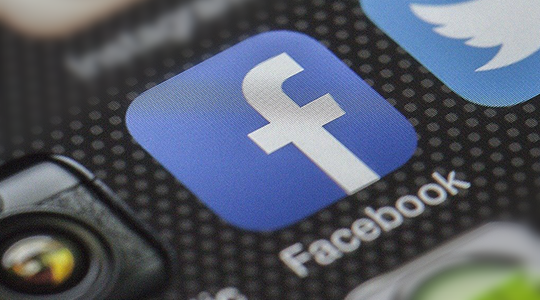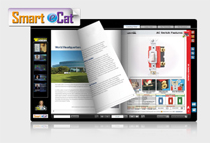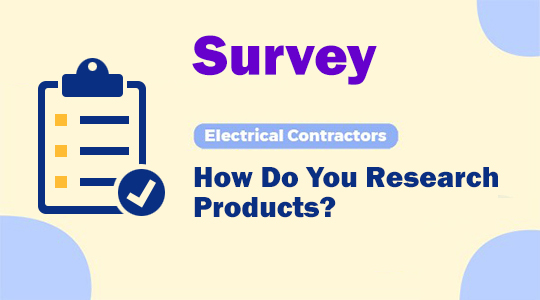
Change and the Future: Don't Blink (Part 1)
Bill Floyd
Full disclosure - This series are excerpts from an email sent to me. I don’t know the source but it made me think. I hope it does the same for you. This information just sums up how fast technology is changing our lives and how the old adage, "If you snooze, you lose" has never been more true. I can't verify that everything written here is 100% accurate but I know from personal experience that a lot is. Is this the future? If even a percentage of it turns out to be so. Hold on to your hats, and businesses. Whether you believe all this on not, staying aware is a MUST …… Begin.
In 1998, Kodak had 170,000 employees and sold 85% of all photo paper worldwide. Within just a few years, their business model disappeared and they went bankrupt. What happened to Kodak will happen in a lot of industries in the next 10 years - and most people won't see it coming. Did you think in 1998 that 3 years later you would never take pictures on film again?
Yet digital cameras were invented in 1975. The first ones only had 10,000 pixels, but followed Moore's law. So as with all exponential technologies, it was a disappointment for a long time, before it became way superior and got mainstream in only a few short years. It will now happen with Artificial Intelligence, health, autonomous and electric cars, education, 3D printing, agriculture and jobs.
Welcome to the 4th Industrial Revolution. Welcome to the Exponential Age.
Software will disrupt most traditional industries in the next 5-10 years.
Uber is just a software tool, they don't own any cars, and are now the biggest taxi company in the world.
Airbnb is now the biggest hotel company in the world, although they don't own any properties.
Artificial Intelligence
Computers become exponentially better in understanding the world. This year, a computer beat the best Go player in the world, 10 years earlier than expected.
In the US, young lawyers already don't get jobs. Because of IBM Watson, you can get legal advice (so far for more or less basic stuff) within seconds, with 90% accuracy compared with 70% accuracy when done by humans. So if you study law, stop immediately. There will be 90% less lawyers in the future, only specialists will remain.
Watson already helps nurses diagnosing cancer, 4 times more accurate than human nurses. Facebook now has a pattern recognition software that can recognize faces better than humans. In 2030, computers will become more intelligent than humans.
Autonomous cars
In 2018 the first self-driving cars will appear for the public. Around 2020, the complete industry will start to be disrupted. You don't want to own a car anymore. You will call a car with your phone, it will show up at your location and drive you to your destination. You will not need to park it, you only pay for the driven distance and can be productive while driving. Our kids will never get a driver's license and will never own a car. It will change the cities, because we will need 90-95% less cars for that. We can transform former parking spaces into parks. 1.2 million people die each year in car accidents worldwide. We now have one accident every 60,000 mi (100,000 km), with autonomous driving that will drop to one accident in 6 million mi (10 million km). That will save a million lives each year. Most car companies will probably become bankrupt. Traditional car companies try the evolutionary approach and just build a better car, while tech companies (Tesla, Apple, Google) will do the revolutionary approach and build a computer on wheels.
Insurance companies will have massive trouble because without accidents, the insurance will become 100x cheaper. Their car insurance business model will disappear.
Real estate will change. Because if you can work while you commute, people will move further away to live in a more beautiful neighborhood.
Electric cars will become mainstream about 2020. Cities will be less noisy because all new cars will run on electricity. Electricity will become incredibly cheap and clean: Solar production has been on an exponential curve for 30 years, but you can now see the burgeoning impact.
Last year, more solar energy was installed worldwide than fossil. Energy companies are
desperately trying to limit access to the grid to prevent competition from home solar installations, but that can't last. Technology will take care of that strategy.
With cheap electricity comes cheap and abundant water. Desalination of salt water now only needs 2kWh per cubic meter (@ 0.25 cents). We don't have scarce water in most places, we only have scarce drinking water. Imagine what will be possible if anyone can have as much clean water as he wants, for nearly no cost.
See Part 2 Next Issue
To reply to this article or contact the writer bfloyd@electricsmarts.com
In 1998, Kodak had 170,000 employees and sold 85% of all photo paper worldwide. Within just a few years, their business model disappeared and they went bankrupt. What happened to Kodak will happen in a lot of industries in the next 10 years - and most people won't see it coming. Did you think in 1998 that 3 years later you would never take pictures on film again?
Yet digital cameras were invented in 1975. The first ones only had 10,000 pixels, but followed Moore's law. So as with all exponential technologies, it was a disappointment for a long time, before it became way superior and got mainstream in only a few short years. It will now happen with Artificial Intelligence, health, autonomous and electric cars, education, 3D printing, agriculture and jobs.
Welcome to the 4th Industrial Revolution. Welcome to the Exponential Age.
Software will disrupt most traditional industries in the next 5-10 years.
Uber is just a software tool, they don't own any cars, and are now the biggest taxi company in the world.
Airbnb is now the biggest hotel company in the world, although they don't own any properties.
Artificial Intelligence
Computers become exponentially better in understanding the world. This year, a computer beat the best Go player in the world, 10 years earlier than expected.
In the US, young lawyers already don't get jobs. Because of IBM Watson, you can get legal advice (so far for more or less basic stuff) within seconds, with 90% accuracy compared with 70% accuracy when done by humans. So if you study law, stop immediately. There will be 90% less lawyers in the future, only specialists will remain.
Watson already helps nurses diagnosing cancer, 4 times more accurate than human nurses. Facebook now has a pattern recognition software that can recognize faces better than humans. In 2030, computers will become more intelligent than humans.
Autonomous cars
In 2018 the first self-driving cars will appear for the public. Around 2020, the complete industry will start to be disrupted. You don't want to own a car anymore. You will call a car with your phone, it will show up at your location and drive you to your destination. You will not need to park it, you only pay for the driven distance and can be productive while driving. Our kids will never get a driver's license and will never own a car. It will change the cities, because we will need 90-95% less cars for that. We can transform former parking spaces into parks. 1.2 million people die each year in car accidents worldwide. We now have one accident every 60,000 mi (100,000 km), with autonomous driving that will drop to one accident in 6 million mi (10 million km). That will save a million lives each year. Most car companies will probably become bankrupt. Traditional car companies try the evolutionary approach and just build a better car, while tech companies (Tesla, Apple, Google) will do the revolutionary approach and build a computer on wheels.
Insurance companies will have massive trouble because without accidents, the insurance will become 100x cheaper. Their car insurance business model will disappear.
Real estate will change. Because if you can work while you commute, people will move further away to live in a more beautiful neighborhood.
Electric cars will become mainstream about 2020. Cities will be less noisy because all new cars will run on electricity. Electricity will become incredibly cheap and clean: Solar production has been on an exponential curve for 30 years, but you can now see the burgeoning impact.
Last year, more solar energy was installed worldwide than fossil. Energy companies are
desperately trying to limit access to the grid to prevent competition from home solar installations, but that can't last. Technology will take care of that strategy.
With cheap electricity comes cheap and abundant water. Desalination of salt water now only needs 2kWh per cubic meter (@ 0.25 cents). We don't have scarce water in most places, we only have scarce drinking water. Imagine what will be possible if anyone can have as much clean water as he wants, for nearly no cost.
See Part 2 Next Issue
To reply to this article or contact the writer bfloyd@electricsmarts.com







